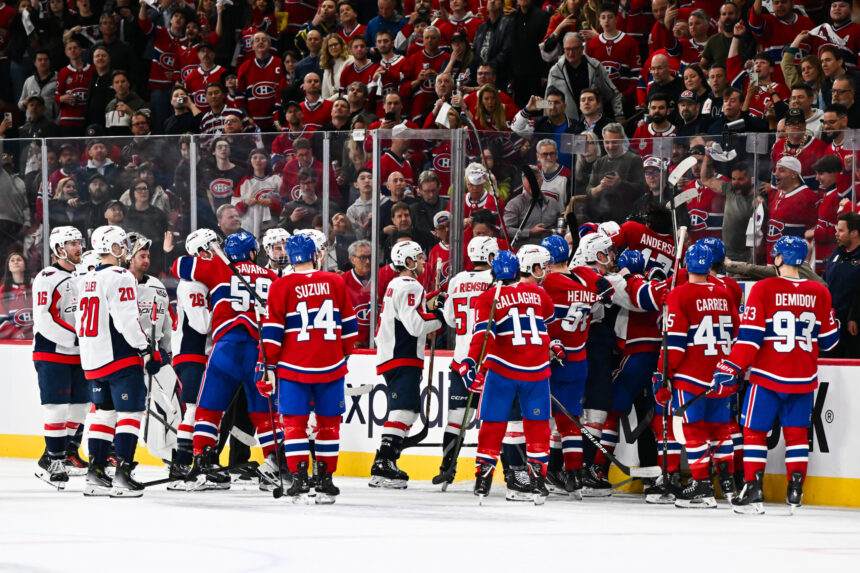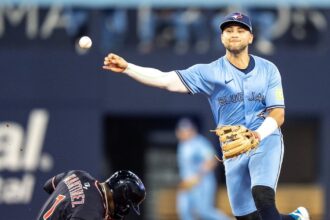The Montreal Canadiens have long been synonymous with hockey excellence—24 Stanley Cup banners hanging from the Bell Centre rafters stand as silent testament to a glorious past. Yet recent years have seen the storied franchise navigating the humbling terrain of rebuilding. What’s emerging now, however, goes beyond merely reconstructing a roster. Under the watchful eyes of General Manager Kent Hughes and Executive Vice President Jeff Gorton, a profound culture shift is taking root—one that could ultimately compress what many feared would be a protracted journey back to relevance.
When Hughes was introduced as GM in January 2022, he emphasized character alongside skill as foundational elements for the organization moving forward. It wasn’t just platitude or press conference rhetoric. The subsequent moves—both in personnel decisions and structural changes—reveal a methodical approach to installing a specific type of identity within the Canadiens’ dressing room.
“Building a winning team isn’t just about collecting talented individuals,” Hughes noted in one of his early press appearances. “It’s about creating an environment where accountability, professionalism, and mutual respect drive performance.”
This philosophy has manifested most visibly in the veterans selected to guide the team’s youth movement. Captain Nick Suzuki, though still young at 24, embodies the professional approach the management seeks. Meanwhile, the acquisition and subsequent extension of Brendan Gallagher—whose tenacity has become legendary around the league—sends a clear message about the attributes valued in the organization.
What makes this culture shift particularly intriguing from an analytical standpoint is how it contrasts with other rebuilding models across the NHL. While some organizations adopt a scorched-earth approach that prioritizes draft capital above all else, Montreal has maintained certain veteran presences specifically to shape the team’s developing identity.
The approach isn’t without precedent. The Tampa Bay Lightning’s transformation under Steve Yzerman followed a similar template—establishing clear cultural expectations while methodically adding talent. That blueprint eventually yielded back-to-back Stanley Cup championships.
The Canadiens’ emphasis on character hasn’t come at the expense of skill acquisition. The drafting of talents like Juraj Slafkovský (1st overall, 2022) and the development of defenseman Kaiden Guhle showcase the dual focus on ability and attitude. This balanced approach creates a framework where young talent can flourish within established professional standards.
“What we’re seeing in Montreal is a sophisticated rebuild strategy that acknowledges hockey’s unique team dynamics,” notes sports psychologist Dr. Martin Brodeur (no relation to the legendary goaltender). “Elite talent obviously matters enormously, but championship teams invariably possess a shared identity and cultural cohesion that elevates individual contributions.”
Perhaps most telling has been the organization’s consistent messaging across all levels. From Hughes and Gorton through head coach Martin St. Louis and into the development staff, there’s remarkable alignment in articulating expectations. This unified front creates clarity for players navigating the pressures of performing for one of hockey’s most scrutinized franchises.
The real test, of course, will come in how this cultural foundation translates to on-ice results. Recent signs suggest the approach is bearing fruit. Improved competitiveness against league powerhouses, the evident development curve of key prospects, and a palpable shift in team identity all indicate the rebuilding timeline may be accelerating.
For Montreal fans who’ve endured the lean years with characteristic passion, this evolution represents more than just hope for future victory parades down Ste-Catherine Street. It offers validation that rebuilding needn’t mean abandoning the values that have historically defined Canadiens hockey.
As the organization continues reshaping itself for future contention, the culture being established today may ultimately prove as crucial as any draft pick or trade acquisition. In a sport where marginal differences often separate champions from contenders, Montreal’s deliberate focus on building from the inside out could become the catalyst that transforms a rebuilding franchise back into a perennial threat.
Will this cultural metamorphosis ultimately deliver the Canadiens’ 25th Stanley Cup? That remains written in the future’s invisible ink. But what’s increasingly clear is that when Montreal does return to hockey’s elite circles, it will arrive with an identity forged in these transitional years—one that honors the franchise’s storied tradition while establishing new standards for excellence in the modern NHL.
For more analysis on hockey culture and team building approaches, visit our CO24 Culture section. To explore more emerging trends in professional sports, check out CO24 Trends.










